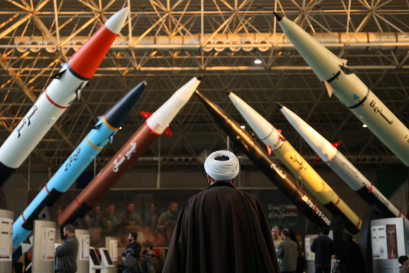Iran Warns That Attacks on Its Nuclear Sites Could Spark War
Introduction
Tensions in the Middle East have escalated as Iran has issued a strong warning against any military action targeting its nuclear facilities. Iranian officials have stated that any attack on these sites would lead to an “all-out war,” raising concerns about potential regional instability. This statement comes amid growing international pressure over Iran’s nuclear program, with some countries suspecting it of developing nuclear weapons, while Iran insists its program is for peaceful purposes.
Iran’s Stance on Its Nuclear Program
Iran has repeatedly claimed that its nuclear activities are purely for civilian use, including energy production and medical research. The country is a signatory of the Non-Proliferation Treaty (NPT) and has allowed international inspections under the framework of the International Atomic Energy Agency (IAEA). However, the level of uranium enrichment and restricted access to inspectors have fueled suspicions that Iran is advancing towards nuclear weapons capability. Tehran argues that Western countries, particularly the United States and Israel, are unfairly targeting it while ignoring nuclear arsenals possessed by other nations in the region.
Past Attacks on Iranian Nuclear Facilities
Iran’s warning comes in the wake of past attacks on its nuclear infrastructure, allegedly carried out by Israel. In recent years, explosions, cyberattacks, and assassinations of Iranian nuclear scientists have been attributed to Israeli intelligence operations. One of the most significant incidents was the 2020 killing of Mohsen Fakhrizadeh, Iran’s top nuclear scientist, which Iran blamed on Israel. In response, Iran has vowed to strengthen its nuclear program and take retaliatory measures against any future threats.
Regional and Global Reactions
Countries in the Middle East, particularly Israel and Saudi Arabia, view Iran’s nuclear ambitions as a direct threat to regional security. Israel has consistently opposed Iran’s nuclear program and has hinted at possible military strikes to prevent Iran from acquiring nuclear weapons. The United States, a key ally of Israel, has also kept the possibility of military action on the table but has primarily focused on diplomatic efforts to curb Iran’s nuclear progress. Meanwhile, global powers such as Russia and China have urged de-escalation and have called for diplomatic negotiations to prevent conflict.
Potential Consequences of an Attack
If Iran’s nuclear sites were attacked, the consequences could be catastrophic. Iran has made it clear that it would retaliate forcefully against any aggressor, potentially targeting U.S. bases in the Middle East and Israeli cities. This could lead to a broader regional conflict involving multiple countries and militant groups allied with Iran, such as Hezbollah in Lebanon and various factions in Iraq and Yemen. A direct confrontation could also disrupt global oil markets, as Iran might block the Strait of Hormuz, a critical waterway for international energy shipments.
Diplomatic Efforts and the Future of the Iran Nuclear Deal
The Iran nuclear deal, formally known as the Joint Comprehensive Plan of Action (JCPOA), was signed in 2015 between Iran and world powers, including the U.S., Russia, China, France, the U.K., and Germany. The agreement aimed to limit Iran’s nuclear activities in exchange for sanctions relief. However, the U.S. withdrew from the deal in 2018 under the Trump administration, reimposing severe economic sanctions on Iran. Since then, diplomatic efforts to revive the deal have been ongoing but have faced significant challenges. Some experts believe that renewed negotiations could help ease tensions and prevent military escalation.
Conclusion
Iran’s warning about an “all-out war” in response to attacks on its nuclear sites underscores the fragile security situation in the Middle East. While some nations see military action as a way to curb Iran’s nuclear ambitions, the risks of a full-scale conflict make diplomatic solutions more crucial than ever. Moving forward, world powers must work together to find a peaceful resolution that addresses security concerns while avoiding devastating warfare.
Read More: Survivors of New Orleans Truck Attack Struggle with Ongoing Trauma


Leave a Comment